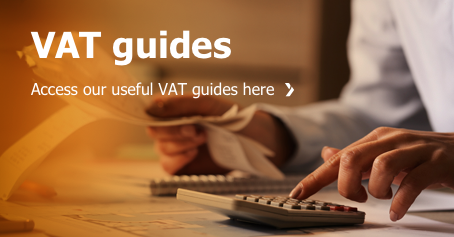Italy VAT Guide

Fabio Mazzini
Italian VAT specialist
This guide is an overview of the Italian’s Value Added Tax (“VAT”) system, focussed on how it affects foreign businesses trading with Italy. It is general in nature and unlikely to cover the specifics of your scenario. It should be read as such and not be construed as advice. For advice as to how your business is affected by Italian VAT please contact a Kreston Global Italian VAT specialist.
- What in the tax called?
- Who is the tax authority?
- What type of tax is it?
- What is it due on?
- What are the VAT rates?
- What does a VAT number look like?
- Is there a registration limit?
- When does a non-established entity need to register for VAT purposes?
- When is the place of supply on the IT?
- Any special rules?
- Does a non-established entity need a fiscal representative?
- How often do VAT returns need to be submitted?
- Are penalties imposed for late registration?
- Are penalties imposed in other circumstances?
- Can VAT incurred by overseas businesses be recovered?
- Can VAT be deducted?
- Do I need to issue an invoice?
- Other
What in the tax called?
IVA – Imposta sul Valore Aggiunto (VAT – Value Added Tax)
Who is the tax authority?
Agenzia delle Entrate (Inland Revenue)
What type of tax is it?
Tax applied on the supply of goods and services made in Italy by companies and professionals, and on imports of goods.
What is it due on?
Taxable turnover – VAT is added to the value of supplies of goods and services (objective requirement) where the “place of supply” is the Italian territory (territorial requirement), and in the exercise of a business, trade or profession (subjective requirement).
What are the VAT rates?
Taxable:
22% – standard rate
Reduced rates are applied to specific goods and services: 4% / 5% / 10% – reduced rate; 0% – zero rate.
Exempt:
0% – Exemptions for specific services/goods.
0% – zero rate i.e.:
- Exports and EU sales;
- Operations not respecting one of the above indicated requirements.
Operations VAT exempt are expressly identified by law i.e.:
- Finance;
- Insurance;
- Real Estate (subject to the option to apply VAT for commercial properties);
- Health / Welfare;
- Educational and Cultural Services.
4% – some foodstuffs, beverages and agricultural products.
5% – certain health services, sale of nutritional herbs, transport services on seas, lakes and rivers, for district heating services, for specific products re childhood.
10% – supply of electricity and gas for household use, medicines, building renovation works and specified goods and services.
What does a VAT number look like?
IT 12345678910 (eleven numbers)
Is there a registration limit?
VAT registration is usually mandatory in Italy except:
- for IT established privates – the limit is Euro 5.000 (activity performed not on a regular basis).
When does a non-established entity need to register for VAT purposes?
- Imports of goods on the IT territory or purchase of goods from IT established companies (B2B) if goods remain in Italy;
- Activities carried out with end consumers / non-commercial entities that are not registered for VAT purposes in Italy.
When is the place of supply on the IT?
Generic services are considered made in Italy when rendered to VAT established subjects in Italy or to non-VAT subjects if rendered by VAT established subjects in Italy. Specific rules are foreseen in the event of e.g.:
- Land and property services;
- Digital, telecommunications and broadcasting;
- Services – including admissions – linked to conferences / meetings;
- Car rentals;
- Restaurant and catering;
- B2C intermediary services.
Any special rules?
VAT is not applicable by flat-rate taxpayers. These are business subjects with annual turnover not higher than Euro 85.000.
Does a non-established entity need a fiscal representative?
An EU subject has the option to apply for direct VAT identification or have a VAT representative. A non-EU subject compulsorily needs to appoint a VAT representative in Italy.
How often do VAT returns need to be submitted?
All taxpayers are required to file:
- A VAT Return on annual basis (by 30th April of the following year);
- Periodic VAT Settlement on quarterly basis: Q1 by 31st May; Q2 by 30th September; Q3 by 30th November; Q4 by 28th February of the following year.
Are penalties imposed for late registration?
Yes – a penalty is due for late VAT registration from 120% to 240% of the total VAT due on operations performed in Italy, reduced in the event of voluntary disclosure.
Are penalties imposed in other circumstances?
Yes – penalties are due for e.g.:
- Late submission of annual VAT return (before 90 days from the original deadline) – penalty Euro 250, reduced in the event of voluntary disclosure;
- Omitted VAT return (after 90 days) – penalty if taxes were due from 120% to 240% of the total tax due;
- Incorrect VAT return – penalty if taxes were due from 90% to 180% of the additional VAT due;
- Late VAT payments – penalties depend on the delay (maximum 30%).
Can VAT incurred by overseas businesses be recovered?
Yes, a VAT refund can be claimed under certain conditions (transaction inherent to business, absence of PE in Italy, objective VAT deductibility of the expenses sustained).A different application / procedure is required in the event of companies established in an EU Member State or outside EU.
Can VAT be deducted?
VAT is deductible for a B2B subject when it relates to an operation inherent to the activity carried out, if the right to deduct is correctly exercised, and if the operation does not in any way fall within the cases of non-deductibility (i.e. representative expenses, partial deduction for car costs a mobile phone costs, etc.).
Do I need to issue an invoice?
General rule: the issuance of an invoice is a compulsory requirement for all supplies of goods or services.
Exceptions: the issuance of an invoice is not mandatory, unless requested by the customer, for some types of operations i.e.:
- retail trade “commercio al dettaglio” (B2C);
- supply of hotel services or administration to the public of food and beverages;
- transport of persons;
- travel agencies.
Other
Starting from 1st January 2019 the compulsory requirement of “Electronic invoicing” for established VAT taxable subjects was introduced. The requirement is for “B2B” subjects and “B2C” only for transactions where there is a compulsory requirement for the issuance of an invoice.

